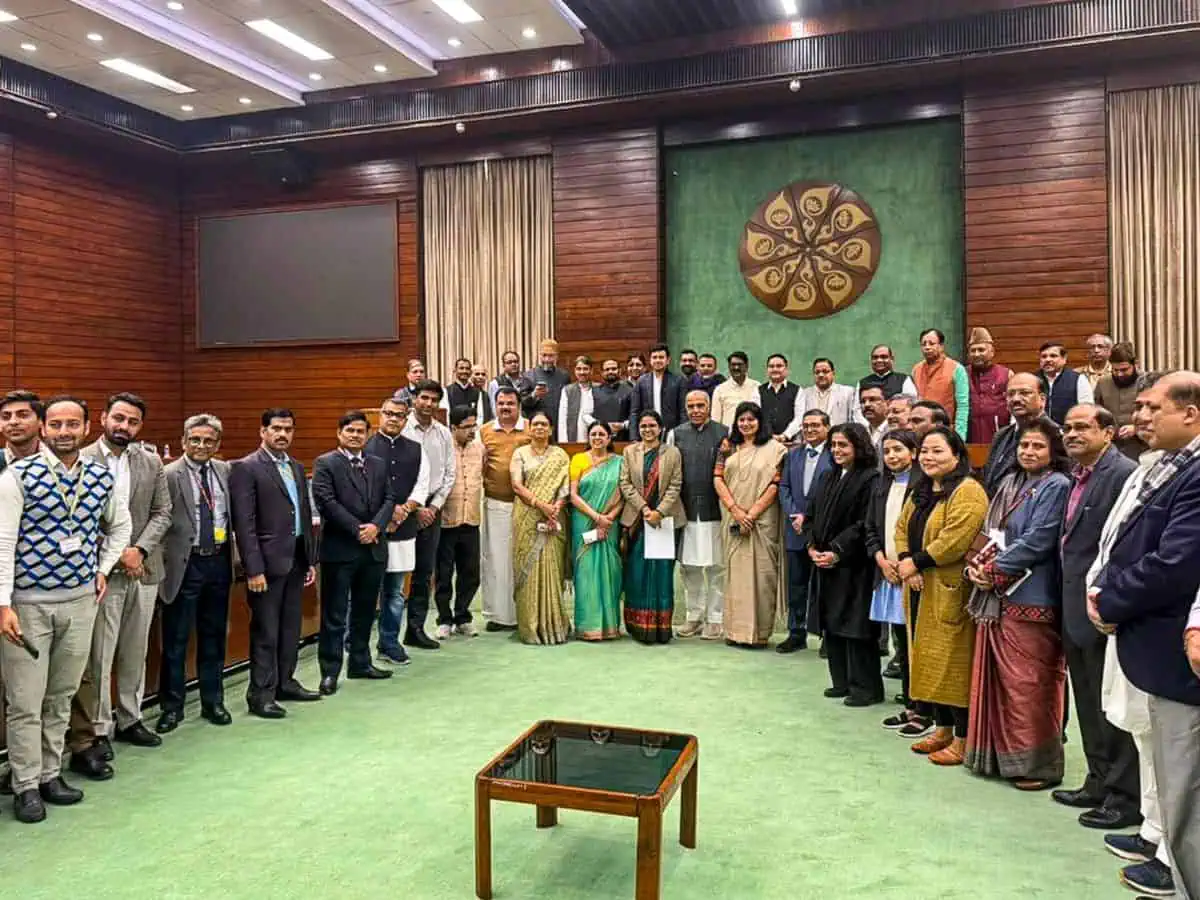New Delhi: Opposition members on Wednesday were united in objecting to the proposed omission of the ‘waqf by user’ clause in the Waqf Amendment Bill, contending that the provision existed since time immemorial.
Almost all opposition members of the parliamentary panel examining the Waqf Amendment Bill submitted dissent notes to the report of the joint committee on bill, claiming that the move would lead to excessive government interference in the functioning of the Waqf boards and was violative of the fundamental rights of the Muslim community.
In his dissent note to the report, AIMIM chief Asaduddin Owaisi said the last-minute inclusion of the proviso to the clause omitting ‘waqf by user’ was “wholly unhelpful” as the principle will only be tested in cases where the property is placed ‘in dispute’, in which case the proviso will not apply.
Seeking to allay fears that the existing waqf properties will be subject to scrutiny after the amended waqf law comes into force, a parliamentary panel had recommended that no cases will be reopened against such properties on a retrospective basis, provided the asset is not in dispute or belongs to the government.
“Any bad-faith actor can institute a litigation over any part of the properties belonging to the ‘waqf by user’ and consequently prevent it from seeking any protection under the amended Act,” Congress member Gaurav Gogoi said in his dissent note.
Gogoi, the deputy leader of the Congress in Lok Sabha, said the bill allows excessive government interference in the functioning, control and management of waqf and waqf properties in the country.
“… This has a detrimental impact on the community as well as the institution of autonomy, which are necessary to administer the institution,” he said.
In their joint dissent note, DMK members A Raja and Mohamed Abdulla said the bill “should be titled as ‘Waqf Annihilation Bill’ given the stealthy manner in which there is an attempt to anyhow change the nature and character of dedicated properties, vesting in the Almighty for all times to come.”
Raja and Abdulla said the proviso of ‘waqf by user’ existed since the time of Prophet Mohammad and any move for its omission would violate the fundamental rights of the Muslim community.
“To obliterate the freedom to establish, manage, own and administer waqf by the religious denomination is violative of the Constitution of India,” they said.
The DMK leades also objected to the provision of including non-Muslims in the waqf boards and nominating members. Several endowments of Hindu faith forbade management by persons other than their denomination, he noted.
Congress leaders Naseer Hussain, Imran Masood and Mohammad Jawed, in their joint dissent note, said essential documents, such as stakeholder depositions, minutes of JPC meetings, and Ministry responses, were withheld from committee members.
The opposition members also said that no clause-by-clause discussion occurred after stakeholder consultations, undermining the transparency and integrity of the legislative process.
“The Bill undermines democratic governance by replacing elected members
of Waqf Boards and the Central Waqf Council with government nominees,
reducing Muslim representation and violating constitutional rights under
Articles 25 and 26,” they said.
Shiv Sena UBT member Arvind Sawant also objected to the inclusion of non-Muslims as members of the Waqf Board.
“Nomination of such non-related members will create chaos as tomorrow the other communities may demand parity in all endowments,” Sawant said in his dissent note to the report.
He noted that as far as Hindu endowments are concerned, it is categorically mentioned that only Hindus will be members and office-bearers of the Hindu Endowments for Temples.
“The Waqf Act was made to save and safeguard the waqf properties. However, the proposed amendments to the Waqf Act are going to do the exact opposite. Instead of saving the waqf properties, they will open new ways and avenues to further encroach upon and usurp the waqf properties,” Sawant said.
Trinamool Congress (TMC) members Kalyan Banerjee and Nadimul Haque objected to the amendment to the original Act that states if any government property is identified or declared as waqf property, before or after the enforcement of this Act, it shall not be a waqf property.
The amendment states that if any question arises regarding the property to be government property then the issue shall be referred to an officer above the rank of collector, as notified by the state government, for adjudication.
“The said amendment hits the basic tenants of the property laws. The government is not meant to create its property by taking recourse in an unauthorised manner. When the government acts as a trespasser, such unauthorised acts cannot be legalised by the proposed amendment,” the TMC leaders said.
YSRCP member Vijay Sai Reddy had submitted his dissent note before resigning as Rajya Sabha member on January 25.








